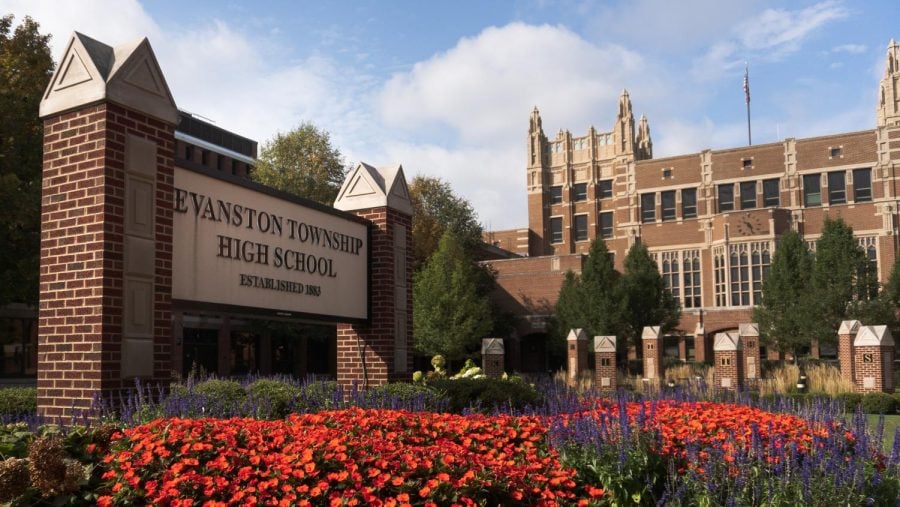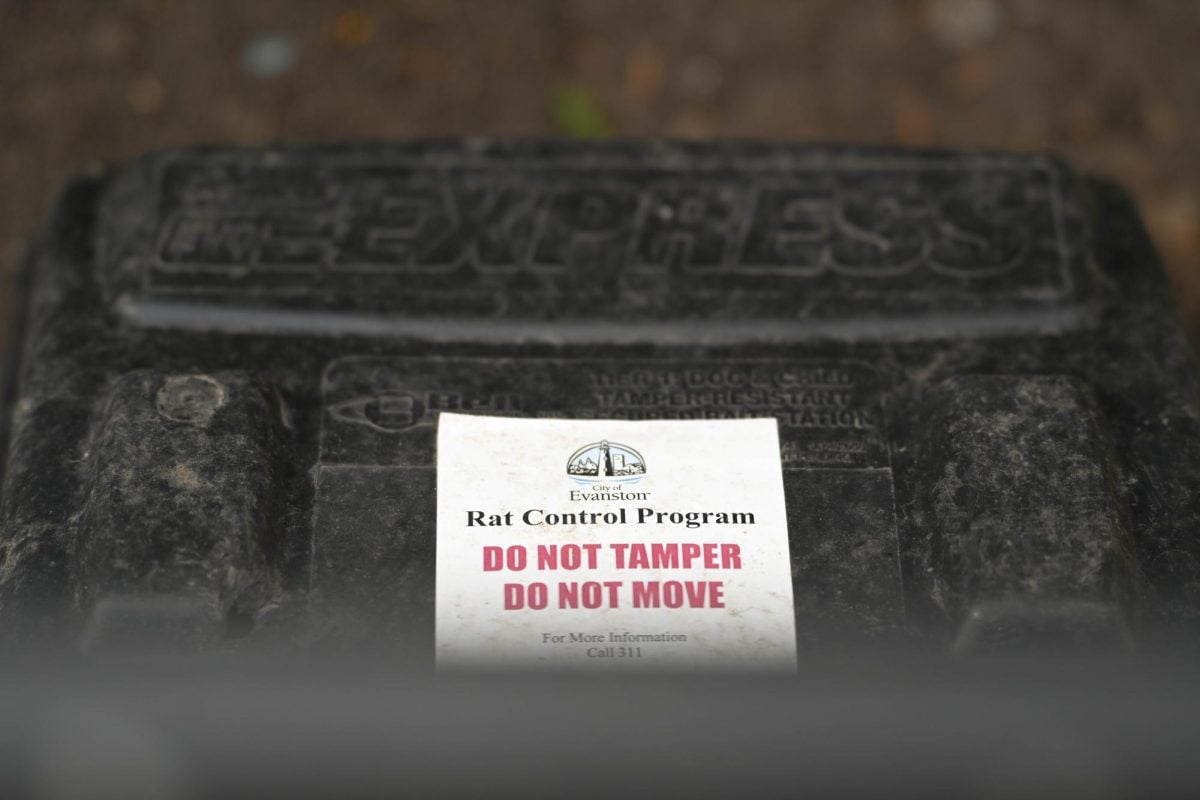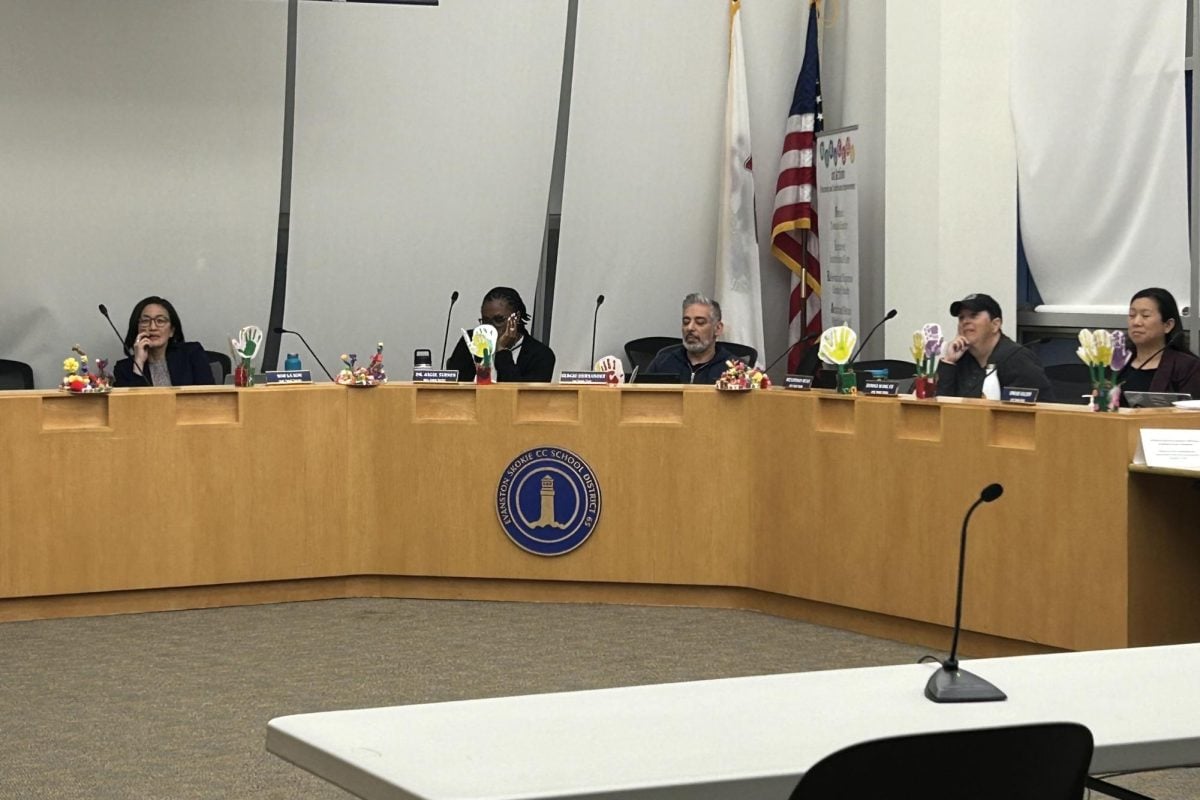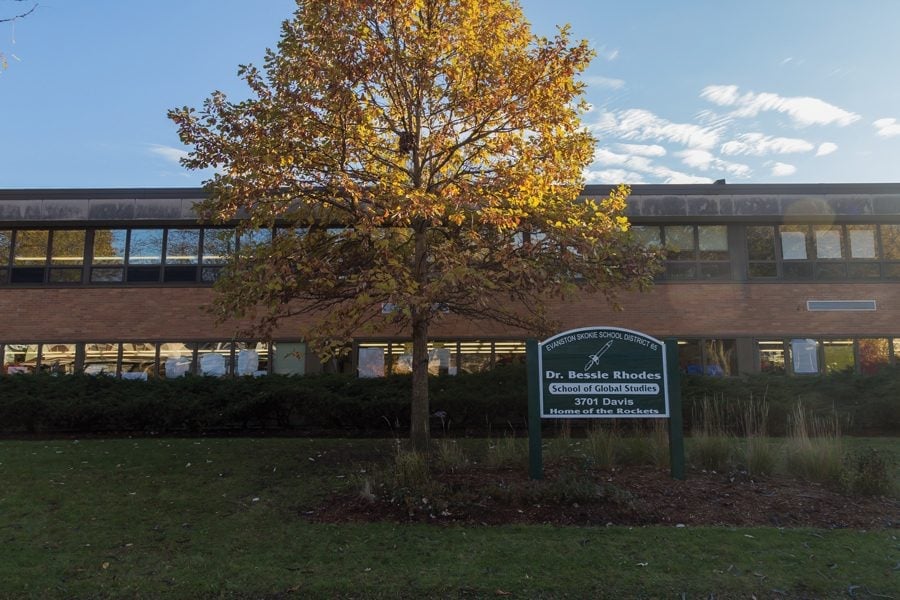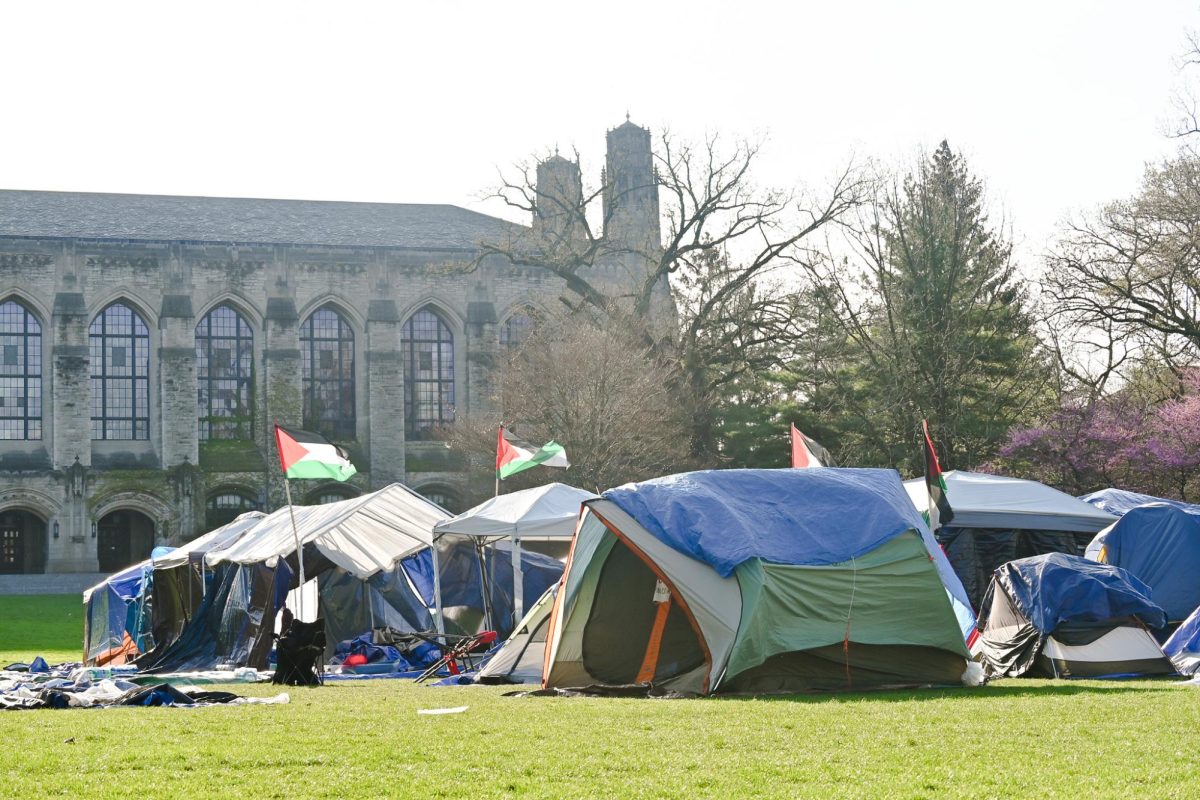A recent petition started by Evanston Township High School student Lyana Hyman calls for an end to the tardiness rollover policy at ETHS – which mandates tardies carry over from year to year. Posted to change.org on Sept. 16, the petition has already secured about 1,236 signatures out of the set goal of 1,500 signatures, as of Wednesday night.
Under the petition, Hyman wrote that the policy “has had a profound negative impact on students like myself who have struggled with mental health issues such as depression and anxiety.”
According to the ETHS Pilot Handbook, students have 10-minute passing time between blocks on Orange and Blue Days (Tuesdays to Fridays) and 5 minutes on Mondays. A regular bell calls students in the class a minute before the start of the next block.
A tardiness bell then follows. Students who come after are marked Tardy by a teacher. An accumulation of more than 10 tardies puts students on Tardy Probation. Those students aren’t “allowed to attend or participate in any school-sponsored activity” such as proms, clubs, plays, sports games and practices and non-academic field trips.
Students in grades 10, 11 and 12 on Tardy Probation are also placed on restricted lunch — a supervised lunch with a staff member — and are prohibited from leaving the school building during lunchtime.
“I am somebody who has been often late to school due to a lot of family issues and things going on in my life,” said Natalya Guiden, a junior at ETHS. “And having tardies stack up and be used against me later, when attending homecoming, or wanting to go outside for lunch — not being allowed to do that has really affected my daily school life.”
According to several students and parents, dissatisfaction with the tardiness policy has been a persistent issue.
Kristen Scotti, a parent of an ETHS senior, said a group of parents brought up the issue to ETHS School Board last year.
Scotti said the issue came up last year prior to homecoming, as many students were told they could not attend because they had accumulated too many tardies. However, Scotti said the reasons students received their tardies were largely due to circumstances out of their control, including physical disabilities.
The policy, however, remained. Still, Scotti said she feels that there are better ways to address tardiness. Tracking attendance is important, but so is addressing the underlying issues that lead to tardiness, she said.
She said there are many reasons that might lead to student’s late arrival to the classroom: mental health issues, late school buses, lack of easily accessible gender-neutral bathrooms and lack of accommodations for students who might benefit from it.
“A lot of the reasons that I’ve been late to school have been outside of my control or due to outside factors,” Guiden said. “Last year towards the end of the year, I was in a partial hospitalization program. And when I came back, I was late for most of the year afterward. I think I had 34 tardies when I started the year this year.”
Hyman wrote under the petition that she feels the policy “is robbing (her) of the full high school experience.” The punishment is too harsh, especially for students who already struggle with challenging situations, she wrote.
Takumi Iseda, a Director of Communications at ETHS, wrote in an email that ETHS delegates a team consisting of a counselor, dean, social worker and psychologist to each student to secure student wellbeing.
“This includes working with students to help address the causes of chronic tardiness and the frequent opportunities to clear tardies before school, after school, during the school day and on weekends,” Iseda wrote.
ETHS offers several opportunities for students to clear tardiness penalties including access to academic support such as AM Support, Academic Study Center and Wildkit Academy.
But Guiden said she feels these resources are often inaccessible.
“The academic study center is a way to clear tardies, but it has a 40-student capacity limit so if you don’t make it there in time, then they turn you away,” said Guiden. “Wildkit Academy is only, I think, once a month so using that to clear tardies regularly isn’t an option.”
Email: [email protected]
Twitter: @_megija
Related Stories:
— ETHS disproportionately suspends Black students. That trend isn’t changing
— Teachers at ETHS embrace ChatGPT
— Students and parents advocate for change in ETHS attendance policy

